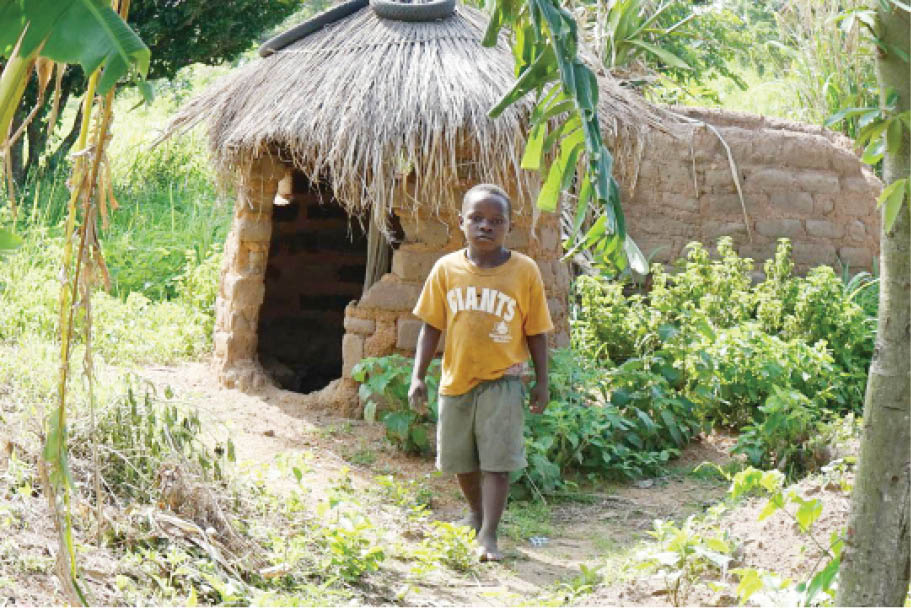The potential role of private sector in ending open defecation in Nigeria
With nearly 200 million inhabitants, Nigeria is the most populous country in Africa. With a population of this scale, any progress or regression in development clearly has a significant impact on both African and global development indicators. In 2018, the Federal Ministry of Water Resources, National Bureau of Statistics and UNICEF initiated a survey to […]

Unimproved Toilet. An unimproved toilet used by a family seven.Mbaembera 2 Katsina – Ala LGA, Benue State
With nearly 200 million inhabitants, Nigeria is the most populous country in Africa. With a population of this scale, any progress or regression in development clearly has a significant impact on both African and global development indicators.
In 2018, the Federal Ministry of Water Resources, National Bureau of Statistics and UNICEF initiated a survey to assess the state of the Water, Sanitation, and Hygiene (WASH) sector in Nigeria. The results were appalling.
The survey revealed that only 11 percent of Nigerians have access to basic water, sanitation, and hygiene services; 24 percent of the population practice Open Defecation; and rural dwellers have an average per capita share of fewer than four litres of water per day.
Nigeria’s level of access to WASH services lags far behind those of other countries in the region. The initial results of the survey were so shocking that they were used as one of the platforms to declare a state of emergency in the WASH sector by the Nigerian president, Muhammadu Buhari.
There is sufficient evidence to suggest that WASH has a huge effect on many other development aspects of the population.
If Nigeria is serious about tackling the challenge of open defecation, then the country needs to explore every available asset to progress exponentially instead. But what does that mean in practical terms and how should the country move from where it is right now?
Nigerian leadership needs to appeal to and attract the private sector (PS) by providing an enabling environment for the latter to effectively engage in sector development.
The PS can bring a wide spectrum of skills that the public sector usually lacks; innovation, efficiency, effectiveness, trust, confidence to name a few. Also, and unlike other public and external resources, the PS avails a critical local resource that is never depletable.
Moreover, the commitment at the federal level needs to be replicated at state level where state leaders need to hold their state WASH authorities responsible for domesticating the roadmap, closely and continuously follow up on progress in implementation. This is implicit in true leadership to face and combat this challenge.
Financial commitment is also needed to construct public toilets and support communications campaigns for behavioral change so that people start rejecting Open Defecation as a norm, then build and use toilets.
Part of this campaign would entail leaders directly appealing to their communities and help defeat Open Defecation by constructing household latrines. Nigerians listen to their leaders who, in turn, should also make sure that all operational hurdles to reach this goal are eliminated.
This is in line with UNICEF senior management’s set vision with regards to PS engagement, as voiced by ED Fore, who stated, “Often, non-profits and government think of businesses to give them money to fund their programmes or to be a contractor to deliver something.
Through donor funds, UNICEF is already using its convening power in supporting sanitation marketing by empowering Toilet Business Owners (TBOs) and local masons to build improved sanitation facilities, establishing the connection with local manufacturers of sanitary components and trigger a demand for its use.
UNICEF is also supporting sanitation financing by advocating the use of and canvassing local resources to loan to the poor who can, in turn, build their latrines. These successful experiences could be shared amongst the different states to expand the impact.
This is a big challenge – but in Nigeria, big challenges come with big opportunities.
Zaid Jurji is the Chief WASH, UNICEF Nigeria.
Connect with him on Twitter: @zaidjurji.
